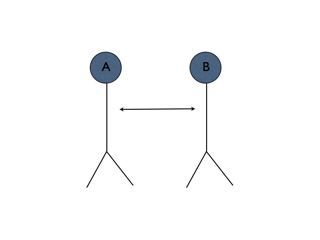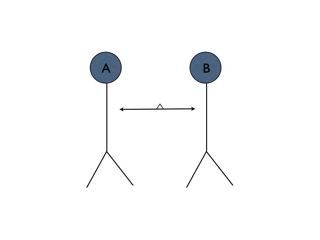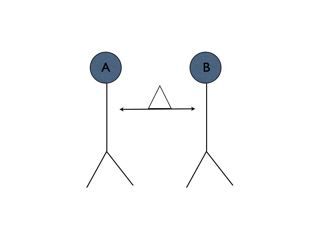Clean communication is at the very foundation of any integrous, generative relationship.

Clean Communication has no “negative charge” to it. There is no component of it that has any form of attack, shame, blame, upset, anger, manipulation, ridicule, disdain, lies or otherwise.
Unclean communication may be consciously or unconsciously delivered. Consciously delivered unclean communication may be easier to deal with, because there is an emotional awareness around it. A person is deliberately setting out to speak with anger, attack, manipulation etc.
Unconsciously delivered unclean communication is trickier, as the person delivering the communication may be in denial about the full intent that lives below their communication.
Someone may also speak without any charge into an environment where the receiving party is either operating from heightened sensitivity or jumps too quickly to conclusions about the communication, and as such they take an innocent communication as an attack on their personhood.
If we look at the graphic below, Person A is having a communication with Person B. In this graphic, the communication is represented by the arrow passing between the two. Neither person A or B are experiencing anything but a smooth flow of communication. This is called Clean Communication.

In this next graphic, the communication is no longer clean. There is a small blip in the flow.

People register these blips in many ways.
You may feel sensations such as...
slight discomfort in some part of your body
a feeling of nausea, breathlessness, increased heart rate
physical shock in the heart or gut area in the more extreme cases
Or you may register a thought, such as…
something is not right here
I do not believe them
something is missing
they are having a go at me
they do not like me/what I have done/my work etc
I sense sarcasm, attack, bitterness, a hidden agenda.
Or you may intuit ideas such as...
attack
ridicule
deception
lying
manipulation…
Sometimes you do not become aware of low grade issues until much later, when upon reflection you may have any of the above experiences, even to the vaguest degree.
If you are Person A, and you do experience any of the above, you cannot assume that your experience is a true interpretation of the other persons communication. You are only able to acknowledge that it is your experience.
In leadership and personal development, the choice to acknowledge this as your experience only, before going into any form of reaction, is an essential part of emotional intelligence. If you do have a knee jerk reaction, YOU have work to do on your own emotional and comprehensive intelligence. (Where as we almost always make the other person wrong.)
Person B may be completely innocent. The fault may lie in your interpretation and sensitivity. You must be willing to accept that this is the case. The only way you are going to establish this is to ask the question of Person B.
Here is an example of how to do that.
Person A. “Yesterday when we were talking about X, you mentioned Y. I may not have heard your message clearly. Would we be able to discuss this just to be sure I am on the right wave length with you? What did you mean by…? “
And you continue until you have reached clarity.
Or, you could say “Yesterday when we were talking about X, you mentioned Y. I may not have heard your message clearly. I may be way off base here, but I had the sense that you were upset about something I have done?” and then you pause until Person B responds.
Person B may have delivered unclean communication with intention. This means there is an issue occurring between the two of you and it needs to be addressed. For those of you who do not like confrontation, this may not be a pleasant experience. However, the consequences of not doing this are going to be far worse as the issue will continue to evolve until a major upset occurs. Repression of minor upset over time literally is the cause of major relationship breakdowns. Little atrocities build, and build and build, with one or both parties numbing to the situation, or falling under a kind of spell, or building up such a degree of toxic residue that violence of some form is the only outcome.
Violence or silence. Both serious.
If a small unclean communication is left unaddressed, the next time you step back into conversation with Person B, YOU will be carrying the energy of the unclean communication. Unless you have very high emotional intelligence, you will find it hard to step back into any form of communication with this person without carrying some form of residue.
Residue can look like…
slight nervousness
being wary
looking for confirming evidence that you are right
anxiety
upset of some form
a combative approach
defensiveness
withholding certain pieces of information
lowered trust
Person B may still be innocent. The issue is quite possibly entirely yours.
Left unaddressed, and the situation expands to the extent that there will eventually be a blow up. See the third graphic.

Many times, blow up type situations occur from innocence and failure to address issues. For example, if Person A interprets a communication from Person B as carrying a charge, and fails to address it, when they next step back into a communication with Person B they will be carrying some form of residue. At some point Person B, who was innocent to start, picks up the negative charge coming from Person A, and they now bring their own residue to future communications. Eventually a blow up will occur, and all over mis-interpretation and failure to commit to clean communication.
If Person B is bringing overt, intentional attack to their communication, conflict resolution skills are required. Saying nothing is not a healthy option. Most people say nothing or become defensive and add more fuel to a simmering fire.
The practice of Clean Communication is a self-discipline
It works like this. Leaders commits to keeping all communication completely clear always. They also educate their staff on clean communication and ask that everyone commits to clean communication. The language and the practice become part of the culture. Of course, it is critical that the leader supports a level of openness and honesty for this to happen. If there is no safety or trust within the organisation, clean communication will not work. Good leadership skills will ensure this happens.
Even without the staff training, and within a healthy culture, a leader who operates from clean communication will build powerful relationships and demonstrate the highest level of leadership integrity.
In our own business and life, Clean Communication agreements between partners is a non-negotiable. It is often the only non-negotiable rule we have, given that most of our relationships are built with a ground of high trust and respect from the outset.
If all parties are committed to Clean Communication and take the action around this, relationships and the work and life space maintains a healthy flow. Any upset or mis-communication is usually easily resolved. It is the only way to live and work.
*Note. Environmental conditions can contribute to unhealthy communication. Stress, low blood sugar, lack of sleep, hormonal changes and deadlines can make any human snappy. The question is, do they have the self-awareness to recognise the source of their snappy communication? If not immediately, then in a reasonable amount of time, and apologies? Simultaneously, can the person receiving their snappy communication provide bandwidth in that moment, and not take it personally? When things have cooled down, to then openly discuss the situation and consider pathways to not have it happen again. Snapping back at someone who is snappy for an environmental reason, in the moment, will be completely unproductive for anyone. It does not make it right, but it will mitigate the effects short term. If someone is a chronic ‘snapper’ then the environmental conditions need to be better managed, as well as their own self-awareness of the negative effects their communication is having.
If you would like to know more about Christine McDougall and her keynote presentations click here to submit your enquiry, or contact us directly on 1300 55 64 69.
ABOUT CHRISTINE McDOUGALL | web profile
Christine speaks on Beautiful Business - the kind of human enterprise we all long for, where people get to show up and be fully valued, where our work is purposeful, appropriately challenging, and creates things and services that add value to Earth and all the creatures upon it.
Christine speaks on leadership integrity. Read more.

